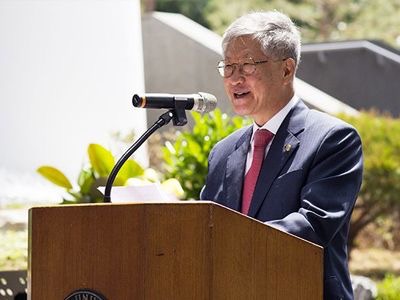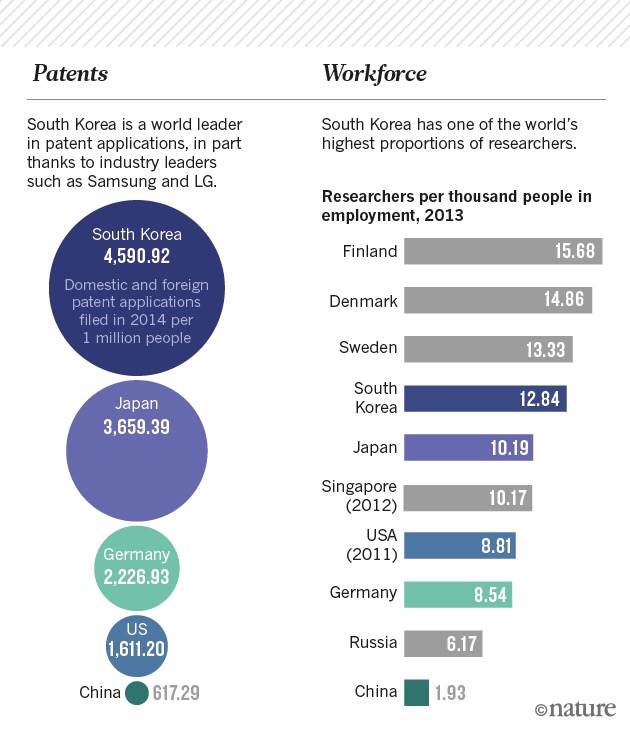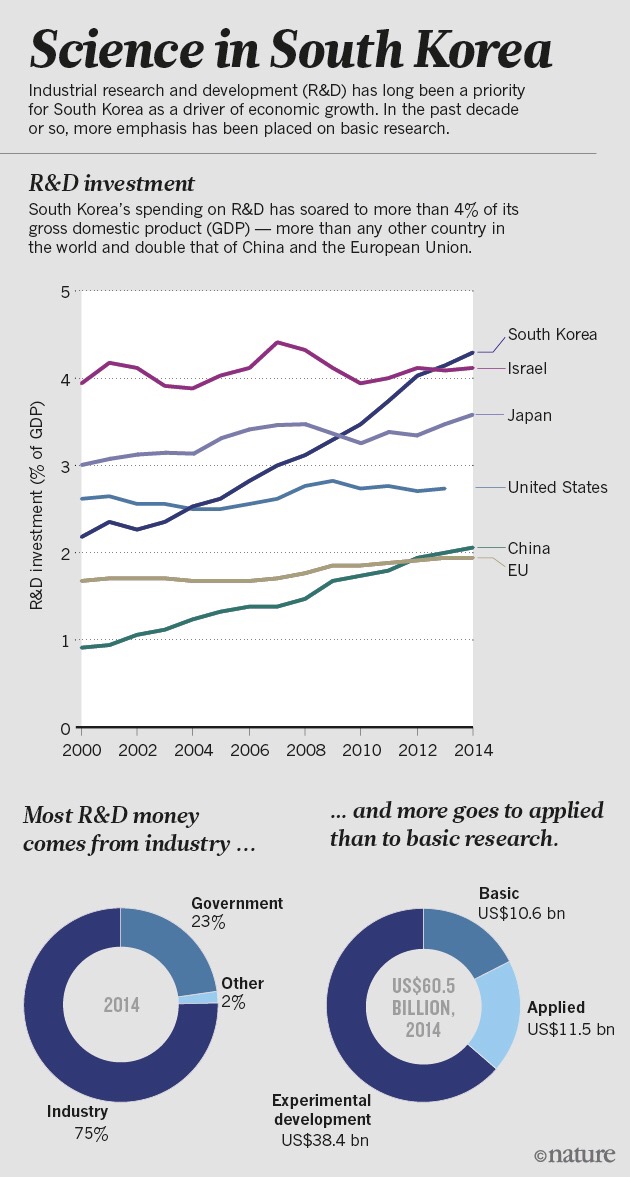



South Korea’s ‘Nobel prize project’ gets overhaul
The Institute for Basic Science — South Korea’s flagship basic-research organization —
is being restructured after a year of scandals and criticism, including allegations of misappropriated funds and nepotism.
The nation’s science ministry
announced on 10 September that the reform measures will include changes to the institute’s administrative structure, its purchasing system and its pay grades.
The Institute for Basic Science (IBS)
was founded in 2011, and is modelled on the Max Planck Society in Germany and RIKEN in Japan.
It is often referred to as South Korea’s ‘Nobel prize project’ — an attempt to win the country’s first scientific Nobel.
But in the past year, the organization
has been rocked by financial-mismanagement allegations against several IBS centres that have been raised in the media and parliamentary hearings.
As a result, 28 of the institute’s 30 centres have been audited in a number of government investigations, the most recent of which ran until August.
The science ministry said the results of the audits informed the reorganization.